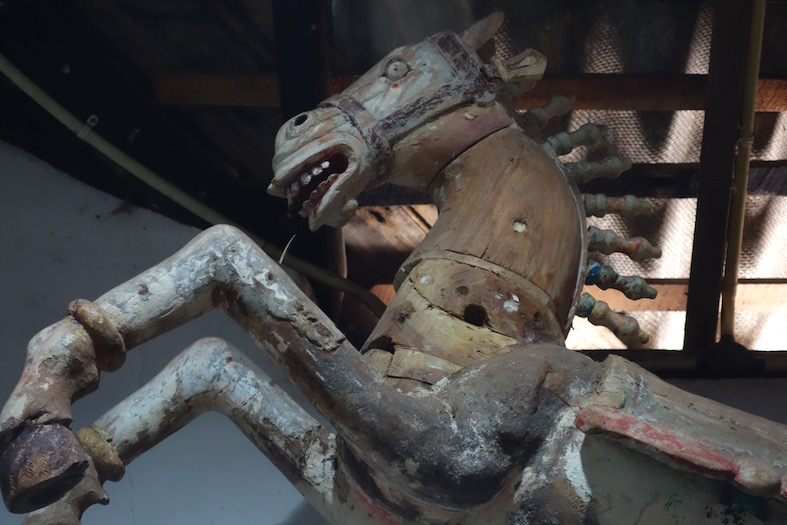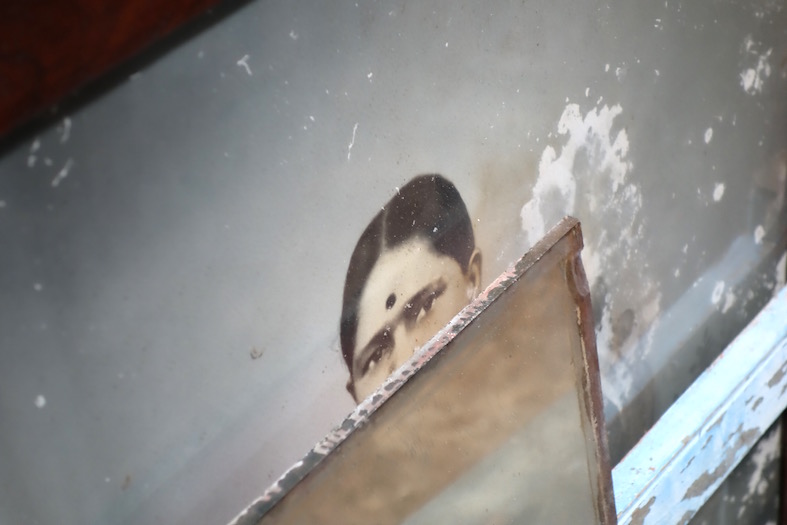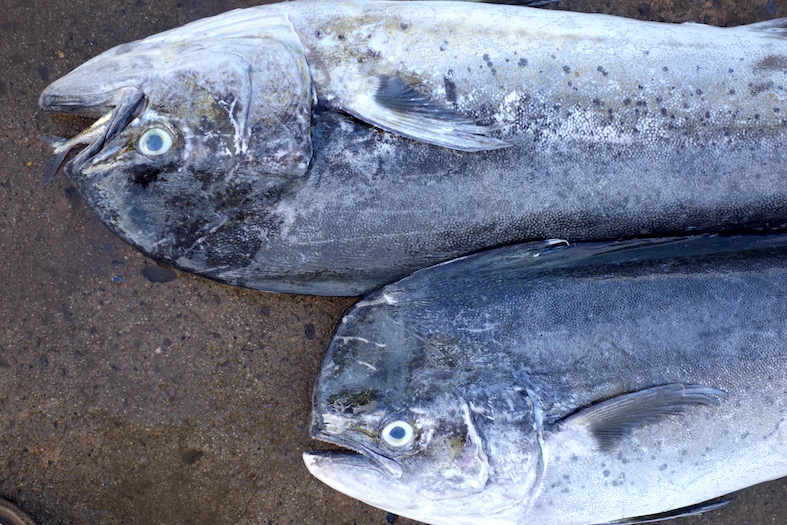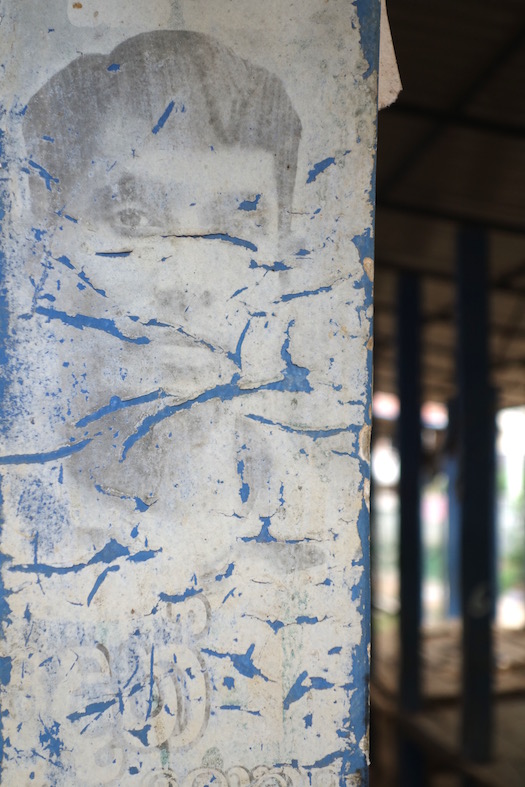
Horse God
The pantheon of gods in Sri Lanka is a complex hierarchy of beings ultimately subject to the cycle of birth and rebirth in the same manner humans are; a process that in Theravada Buddhism is widely accepted to last millions of lifetimes or more, until, after much suffering, enlightenment – and therefore the path to Nirvana – can be achieved.
None of these gods are depicted as being remotely alarmed by this terrifying prospect, with the notable exception of the horse god Muhuna Aśvayāyi.
Aware of the arduous and uneventful series of lives ahead of him – most of which, according to tradition, are likely to see him manifest in the form of a horse – Muhuna Aśvayāyi is portrayed as forever reared up, eyes wide, nostrils flared, neighing in protest at the cosmos.

Wall Archchi
The stereotypes associated with Sri Lankan grandmothers – or ‘archchis’ as they are known – are very similar to those all over the world, in that grandmas are generally seen to be up in everyone’s business 24/7, 365.
This stereotype has entered into popular custom in the form of the Wall Archchi, a partially concealed grandmother painted (or, in modern times, often laminated) onto the walls of a home: usually peeking out from the top of a cupboard. In the example pictured above the Wall Archchi is regarding everyone from behind a unhung mirror.
The figure is not seen as foreboding or auspicious, its eyes are meant to convey neither reprimand nor love. The wall archchi is simply continuously present.

Singing Fish
It’s widely accepted now that over-fishing of Cooper’s Singing Fish from the Indian Ocean will most likely result in the species’ extinction within a few decades. This is especially distressing given that so many of them are thrown onto the street (as illustrated above) when their songs fail to please western tourists.
There is much ritual built up in the restaurants of four and five star hotels wherein diners choose a fish with the sweetest song, and any that fail to ululate in harmonic tones pleasing to the customer are quickly dispensed with. In the hours immediately after dinner time the gutters are filled with the cacophonous keening song of rejected specimens, especially ones unfortunate enough not to sing in accepted western scales.
The sound was probably made most famous on the soundtrack to 2001: A Space Odyssey – directly inspired by the experiences of the film’s author and famous Sri Lankan resident Arthur C Clarke, who would often weep openly at the fading song of thousands of spurned fish, echoing across the urban night.

Aluminium Fish
In 2009 a series of civil but extremely noisy protests were held by Sri Lankan fishermen outside the Japanese embassy in Colombo, following the appearance of the highly controversial Aluminium Fish in the island’s waters.
The attempt by US and Japanese marine biochemists to produce a school of literally metallic fish in Japan’s own seas had supposedly failed in 2006. But three years later huge numbers of them were being caught in nets off Sri Lanka’s east, south and south-west coast, severely disrupting the traditional seafaring industries.
While resilient, rust-proof and purportedly living for several millennia, Aluminium Fish unsurprisingly taste awful.

Home Supplicant
A vanishing tradition in all but the most affluent Sri Lankan households, the Home Supplicant or ‘Gedara Sirura’ is a slumped figure without a face, usually left behind a door somewhere.
Any unwanted items around the house – disappointing gifts, unfavoured foods, etc – are formally presented to the Gedara Sirura, and if in the subsequent hours they are not either consumed or stored away, the offering must be retrieved and dealt with accordingly.
The Home Supplicant is believed by folklorists to be a cousin of the Tooth Fairy, but the Gedara Sirura’s association with social responsibility have seen it fall out of favour (as opposed to the tooth fairy’s decent capitalist principles.)

Lazy Dead
An interesting and completely unique offshoot of the Roman Catholicism introduced to Sri Lanka by Portuguese colonists sees a wide acceptance of certain deceased souls being immensely bored in, and by, the afterlife.
Likenesses of the dead are carved with expressions as if they’re listlessly watching television or contemplating something remarkably mundane, and their unmoving features are then left protruding from the earth, staring at the sky as if they had just been partially resurrected but can’t be bothered to get up all the way out of the ground.
In some of the more cosmopolitan urban areas, if happening upon one of the Lazy Dead, it is thought both good luck and polite to kiss it on the nose.

Stone Visitors
The coastal winds in Sri Lanka frequently erode municipal stonework to reveal visiting spirits. It is considered unlucky to look at these images for too long, and extremely unlucky if you ever see one of them smile at you.

Soot Writing
This is widely considered to be the work of fireflies, often in the employ of bored gods and / or mischievous priests.